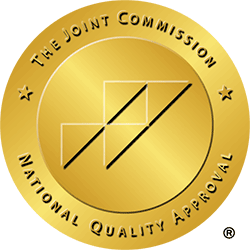
Long-term drug use can have profound effects on the human body, including an increased risk of developing various types of cancer. The relationship between substance abuse and cancer is complex, influenced by factors such as the type of drug, duration of use, and individual health conditions. At BriteLife Recovery, we are committed to educating individuals about these risks and providing comprehensive treatment to support recovery and overall health.
How Long-Term Drug Use Increases Cancer Risk
Chronic use of certain substances can introduce carcinogens into the body, suppress the immune system, and lead to behaviors that further elevate cancer risk. Here’s how specific substances are linked to cancer:
1. Tobacco
Tobacco contains numerous carcinogens and is a leading cause of cancers, including those of the lung, mouth, throat, esophagus, and bladder. Both smoking and smokeless tobacco products significantly increase cancer risk.
2. Alcohol
Heavy and prolonged alcohol consumption is associated with an increased risk of cancers of the mouth, throat, esophagus, liver, colon, and breast. Alcohol can act as a solvent, enhancing the absorption of other carcinogens, such as those found in tobacco.
3. Opioids
While opioids are primarily known for their addictive potential, some studies suggest that long-term use may suppress immune function, potentially increasing susceptibility to certain cancers. Additionally, the lifestyle factors associated with opioid abuse can contribute to cancer risk.
4. Benzodiazepines
There has been debate over the risk for cancer posed by the long-term use of benzodiazepines. Animal studies have reported a relationship between the use of these drugs and thyroid, breast, and liver cancers. While the relationship is not yet definitive, some researchers point out that the risk may be unnecessary, especially considering the potential for dependence and other adverse effects associated with long-term benzodiazepine use.
5. Marijuana
Social environments that normalize heavy drinking, such as certain workplace cultures, friend groups, or family dynamics, can encourage excessive alcohol use. Cultural attitudes toward drinking can also play a significant role in shaping behavior.
Additional Factors Contributing to Cancer Risk
Beyond the direct effects of substances, several factors associated with long-term drug use can further elevate cancer risk:
- Method of Use: Injecting drugs can lead to infections and diseases like hepatitis B and C, which are linked to liver cancer.
- Lifestyle Choices: Substance abuse often correlates with poor nutrition, lack of exercise, and risky behaviors, all of which can contribute to cancer development.
- Environmental Exposures: Illicit drug manufacturing processes may involve exposure to harmful chemicals that are carcinogenic.
The Importance of Early Intervention and Treatment
Recognizing the link between long-term drug use and cancer underscores the importance of early intervention and comprehensive treatment. At BriteLife Recovery, we offer personalized programs designed to address both substance use disorders and associated health risks. Our services include:
- Medical Detoxification: Safe and supervised withdrawal from substances.
Therapeutic Interventions: Individual and group therapy to address underlying psychological factors. - Holistic Approaches: Incorporating nutrition, exercise, and mindfulness to promote overall well-being.
- Aftercare Planning: Ongoing support to maintain sobriety and health post-treatment.

Take the First Step Toward Health and Recovery
Understanding the serious health risks associated with long-term drug use, including cancer, is a crucial motivator for seeking help. At BriteLife Recovery, we are dedicated to guiding you or your loved one toward a healthier, substance-free life. Contact us today to learn more about our programs and take the first step on your journey to recovery.
SPEAK WITH AN ADDICTION SPECIALIST



